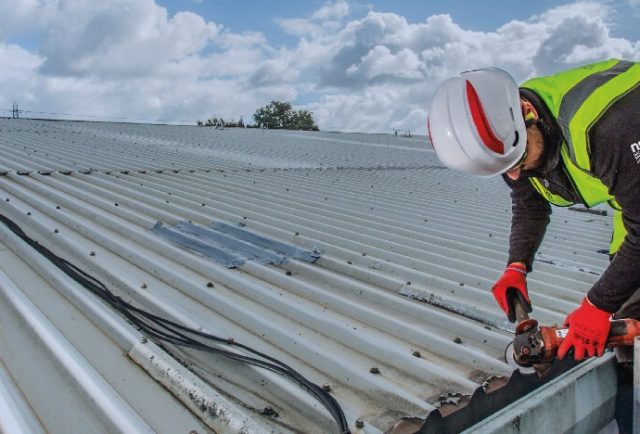When it comes to protecting your commercial property, your roof is your first line of defence against the elements. A well-maintained roof not only enhances the appearance of your building but also safeguards your investment by preventing costly damage. At NSS, we believe that the key to a long-lasting, trouble-free roof is a proactive approach to maintenance. In this blog, we’ll guide you through the essentials of commercial roofing preventative maintenance, helping you keep your roof in top condition year-round.
Why Preventative Maintenance Matters
Commercial roofs are subjected to constant exposure to harsh weather conditions, from intense sunlight and heavy rains to strong winds and snow. Over time, even the most robust roofing systems can develop vulnerabilities. Preventative maintenance helps you identify and address potential problems before they escalate, saving you time, money, and headaches.
1. Routine Inspections: The First Step
Regular inspections are the cornerstone of effective roof maintenance. We recommend scheduling inspections at least twice a year—once in the spring and once in the autumn. Additionally, inspections should be performed after any major weather events, such as storms or high winds.
What to Look For:
- Surface Damage: Look for cracks, blisters, punctures, or any other visible signs of damage on the roofing material.
- Flashing Integrity: Check the flashing around skylights, vents, chimneys, and other roof penetrations. Loose or damaged flashing is a common source of leaks.
- Water Stains: Inspect the interior ceilings and walls for any water stains, which may indicate a leak.
- Roof Accessories: Ensure that rooftop equipment, such as HVAC units or antennas, are securely fastened and not causing any damage to the roof surface.
2. Keep It Clean: Debris and Gutter Maintenance
Debris accumulation is one of the most common causes of roof damage. Leaves, branches, and dirt can trap moisture, leading to deterioration of the roofing material. Keeping your roof clean not only prevents damage but also improves its appearance.
Essential Cleaning Tasks:
- Debris Removal: Regularly clear off leaves, branches, and other debris from the roof surface.
- Gutter and Downspout Cleaning: Ensure that gutters and downspouts are free of blockages. Proper water drainage is critical to preventing water pooling and leaks.
3. Timely Repairs: Don’t Delay the Inevitable
Even minor issues, if left unchecked, can turn into major problems. Addressing small repairs as soon as they are identified is essential to prevent more extensive damage.
Common Repairs:
- Tile/Slate Replacement: Replace any missing, cracked tiles immediately.
- Flashing Repairs: Repair or replace damaged flashing to maintain a watertight seal around roof penetrations.
- Sealant Reapplication: Check and reapply sealant around seams, vents, and other areas prone to leaks.
4. Professional Assessment: When to Call in the Experts
While regular inspections and maintenance can be handled by your facility management team, there’s no substitute for a professional assessment. Hiring a commercial roofing expert to conduct an annual or bi-annual inspection can provide valuable insights and help catch issues that might be missed during routine checks.
Benefits of a Professional Assessment:
- Expertise: As national roofing maintenance professionals our roofers have the experience and knowledge to identify potential problems early.
- Comprehensive Reports: You’ll receive a detailed report of your roof’s condition, including recommended repairs or maintenance actions.
5. Document Everything: Maintenance Records Matter
Keeping detailed records of all inspections, maintenance tasks, and repairs is crucial for several reasons. Not only does it help track the roof’s condition over time, but it can also be valuable for warranty claims or when selling the property.
Record-Keeping Tips:
- Inspection Logs: Maintain logs of each inspection, noting any issues found and the actions taken.
- Repair Records: Document all repairs, including the materials used and the date of the repair.
- Maintenance Schedules: Keep a schedule of regular maintenance tasks to ensure nothing is overlooked.
Conclusion
Preventative maintenance is an investment in the longevity and reliability of your commercial roof. By staying proactive and addressing potential issues early, you can avoid costly repairs, extend the life of your roof, and ensure the safety and comfort of your building’s occupants.
At NSS we specialise in providing comprehensive roofing maintenance services tailored to the unique needs of commercial properties. Contact us today to schedule your next gutter clean which includes a free roof inspection report.

